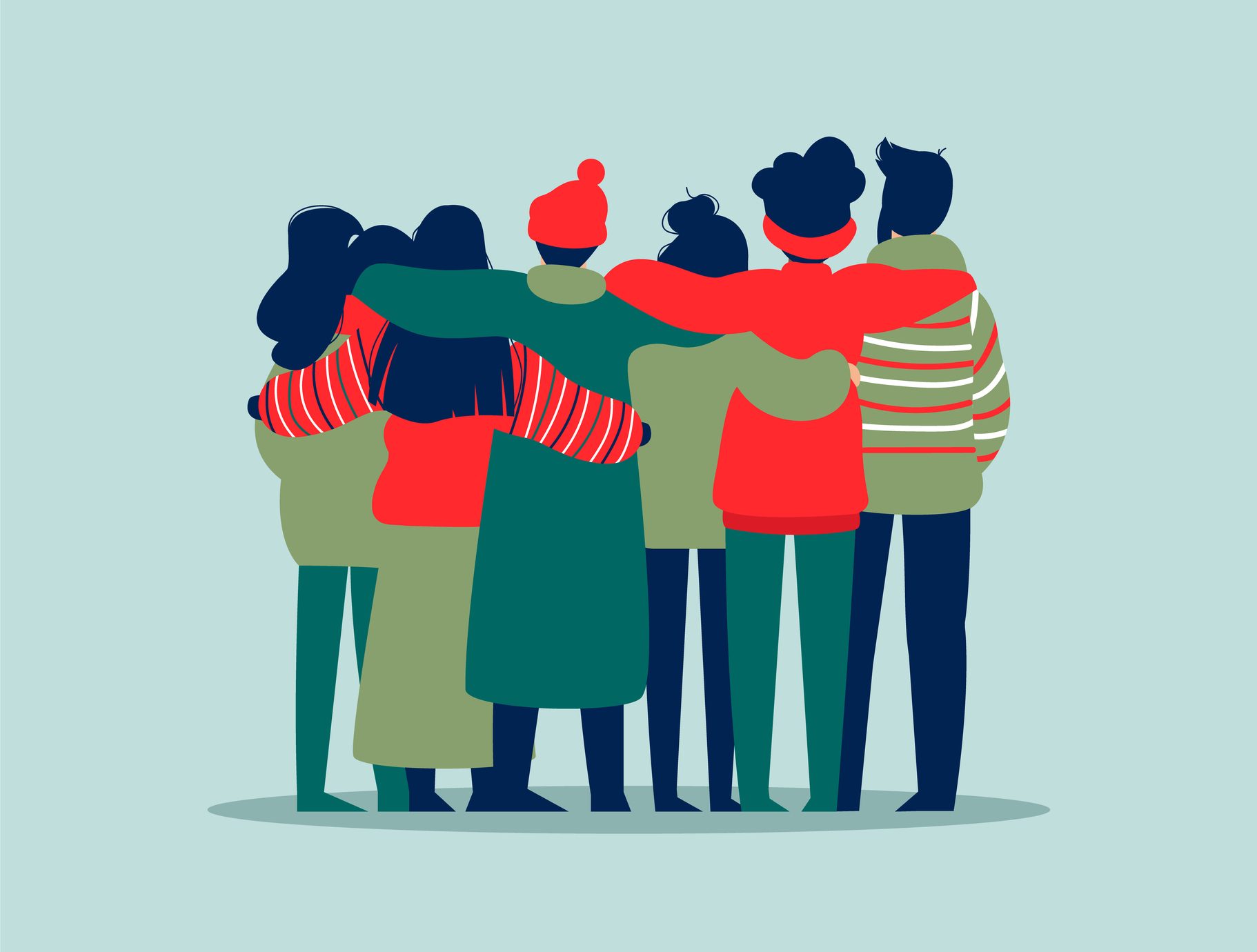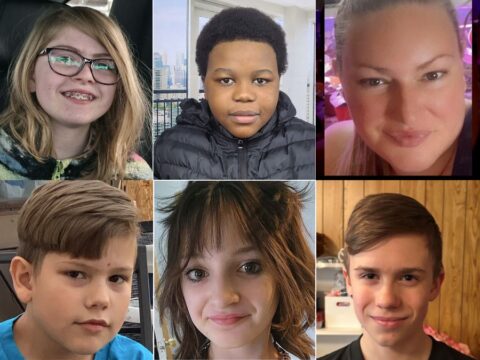In 2021, I couldn’t help but feel a kinship with Mary and Joseph on that first Christmas night, when they experienced the weight of the words “there is no room” as they looked for shelter. At the beginning of December, I had sent my mom an email with big news: my partner, Kris, and I had moved in together. Not long after, my younger brother gently informed me that my parents preferred I keep away from their home during the holidays.
“They need time to process everything,” he told me. And while this made sense, the rejection didn’t hurt any less.
You may unsubscribe from any of our newsletters at any time.
A year earlier, my relationship with my parents had become tense, to say the least, when I opened up about being in a queer partnership. My dad, a staunch evangelical, told me that I couldn’t live under his roof if I was “really going to pursue this lifestyle,” and Kris was never to come to the house. My mom supported his decision.
I expected more curiosity and understanding from the father who raised me to think critically about my faith. As a pastor, he had mentored many young people over the years. Instead, he told me that I could stay as long as I needed to, but that it would be best if I left sooner rather than later. It was terrifying to be told I had to leave home and heartbreaking to be rejected by the two most important people in my life.
After moving out, I tried to maintain a connection with my parents. My partner would drop me off for family meals on Sundays, but she was never welcomed inside. The decision to take the next step and move in with Kris would not be tolerated, much less supported, by my parents. So they distanced themselves further from me and whatever tension my presence at Christmas would cause.
For the first time in my life, I had to find a way to celebrate the holidays without my family. Much like how Mary and Joseph journeyed far from their community in Nazareth, Kris and I drove from our Toronto apartment to Ottawa on a snowy Christmas morning. Our destination was the home of the family of Kris’s former classmate, who heard about our struggles and wanted to welcome us.
I remember walking into their cozy townhouse, meeting a rambunctious, affectionate dog and being enveloped in big hugs. I exhaled a sigh of relief. There was no scrutiny or interrogation, no uneasy glances or nervous greetings — just unashamed, wholehearted joy. Even though I was grieving my family, we were grateful to be with people who were ready and willing to accept us.
I’d always thought of “chosen family” as people we decide to keep in our lives, but I’ve realized that this term also means people who choose us. For the queer community, which has historically been excluded and marginalized, it is powerfully healing to be chosen. I’m learning that it’s okay for me to experience this acceptance and support with others while I weather challenges with my parents.
More on Broadview:
- I’ve hated Christmas for years. Maybe it’s time to hate it a little less.
- Faced with our families’ homophobia, my fiancée and I are starting our own holiday traditions
- Forget Hallmark Christmas movies – these films serve up the holidays without the schmaltz
Thankfully, my relationship with my mom and dad has gotten better since that lonely and cold December. My mom comes to visit my partner and me, bringing us home-cooked meals from time to time. And on one memorable day, she chose to sit down with us, asking to listen to our stories. My father still has a long way to go, but after two years of silence or strained civility, we shared a meal and had an honest conversation.
Even with these gradual shifts, I long for the day when my parents can accept all parts of my life and my identity with joy, not merely tolerance. Until that happens (if it happens at all), I am grateful for the chosen family God unexpectedly provides, who care for me in ways my parents cannot.
I wonder if Mary and Joseph would resonate with this queer intersection of grief and gratitude? During that first Christmas, they probably thought they’d just have baby Jesus and each other for company. They were far from their home, where Mary’s mysterious pregnancy was actually scandalous. Under the stars, they didn’t know about the joy headed their way in the form of a group of shepherds and the Magi. All of these strangers were determined to celebrate with them — just as they were.
***
Karen-Luz Sison is a writer and content creator in Toronto.
This essay first appeared in Broadview’s December 2022 issue with the title “The people who choose us.”















Karen-Luz’ dad was a pastor who encouraged her to think critically about her faith and yet when she found a same sex partner, the love that he preached to others was found lacking in his own heart.
did he not believe what he preached? Many religious people don’t. I was encouraged in seminary to think critically and engage in a process of continuing study but I found that the things I learned don’t go over too well in most churches.
Sometimes we have to move away from those we once held dear and that could mean family or friends or even our church. I have found that not many folk think critically about their faith and this includes clergy and those clergy who try to teach what they’ve learned find they are prevented from imparting it to their congregation for fear of losing their position.
And so, folks like Karen-Luz are the brave ones. There are times we must move from a place that has become toxic to one that is more welcoming and accepting of who we are.